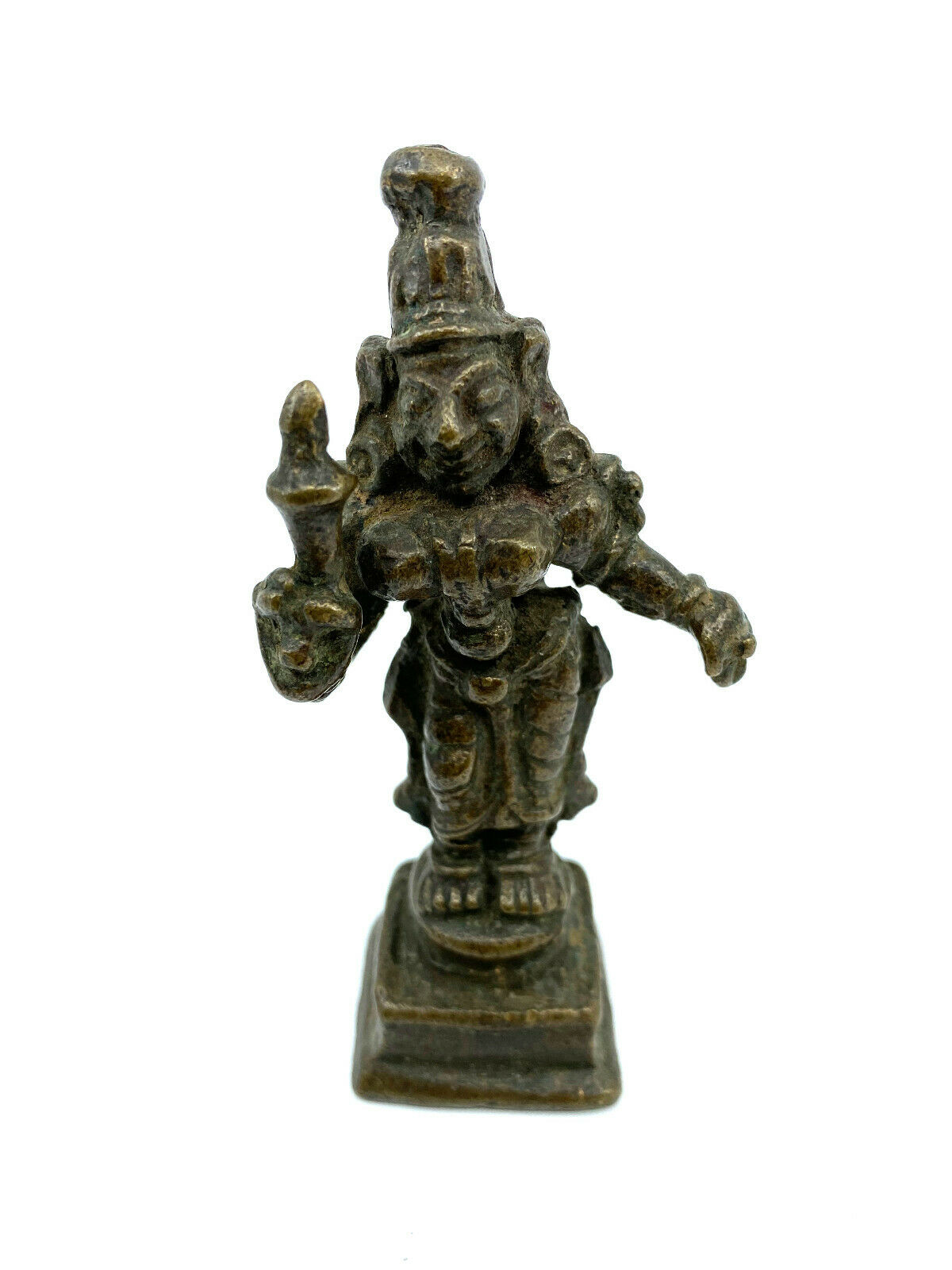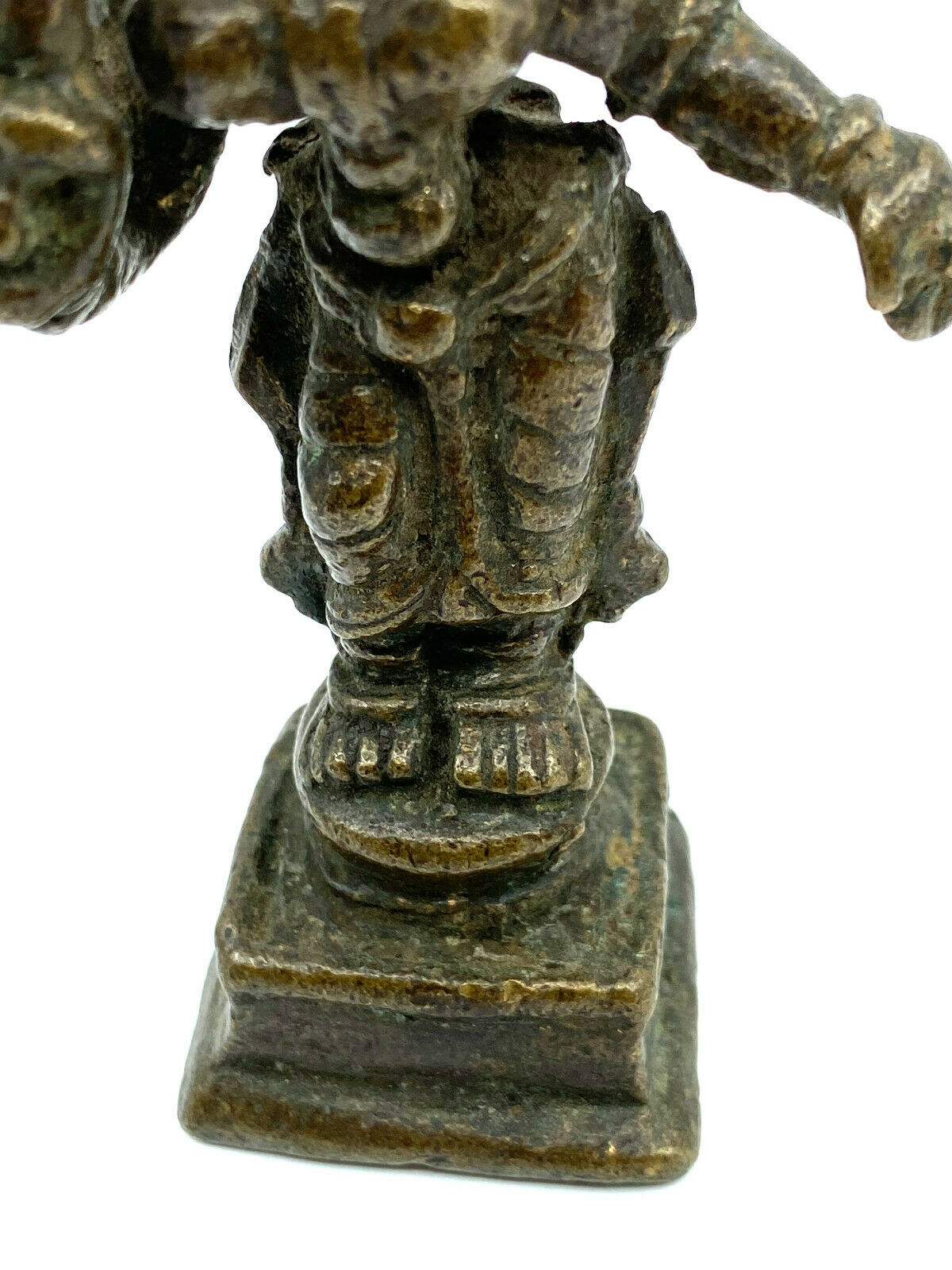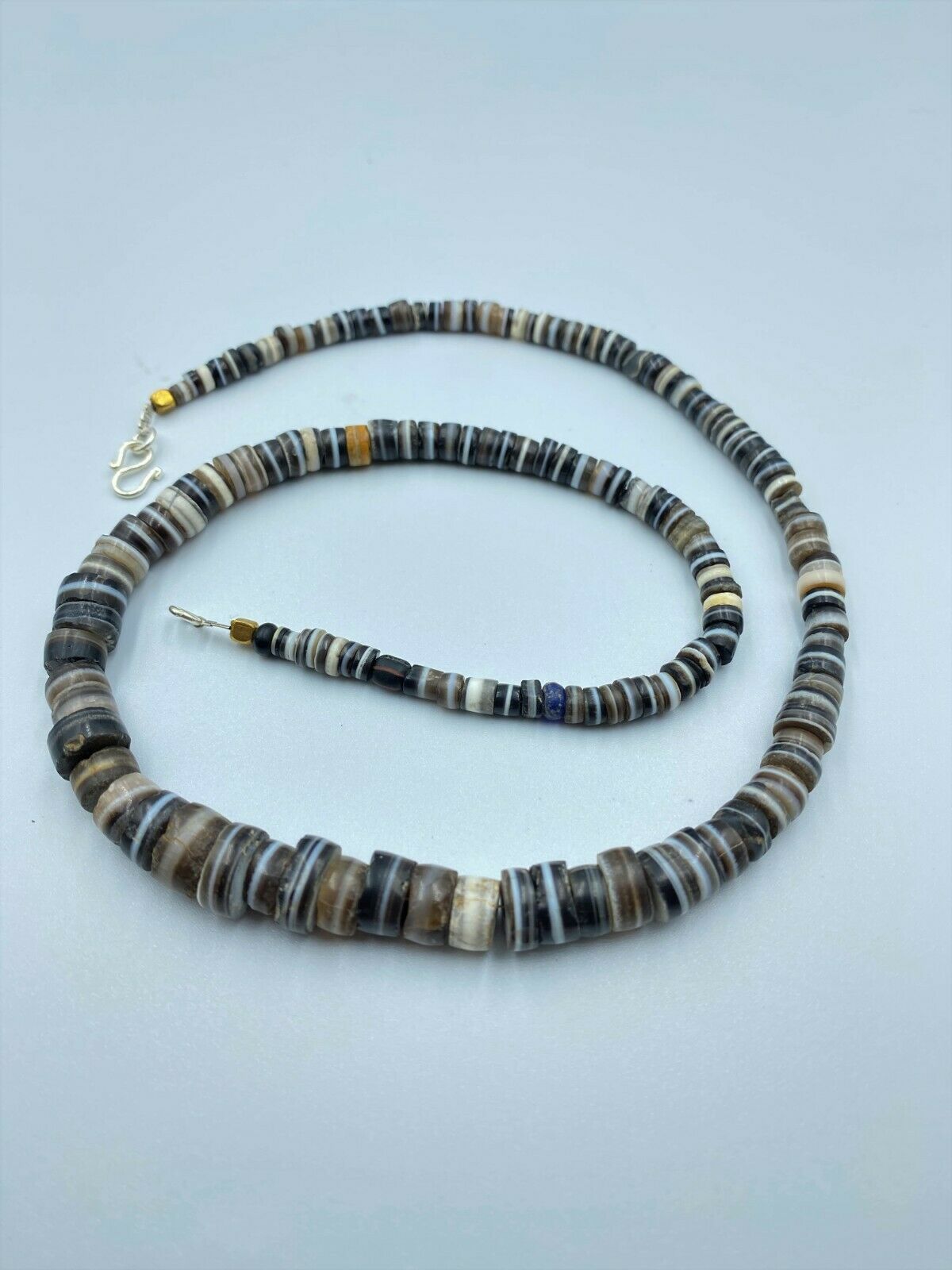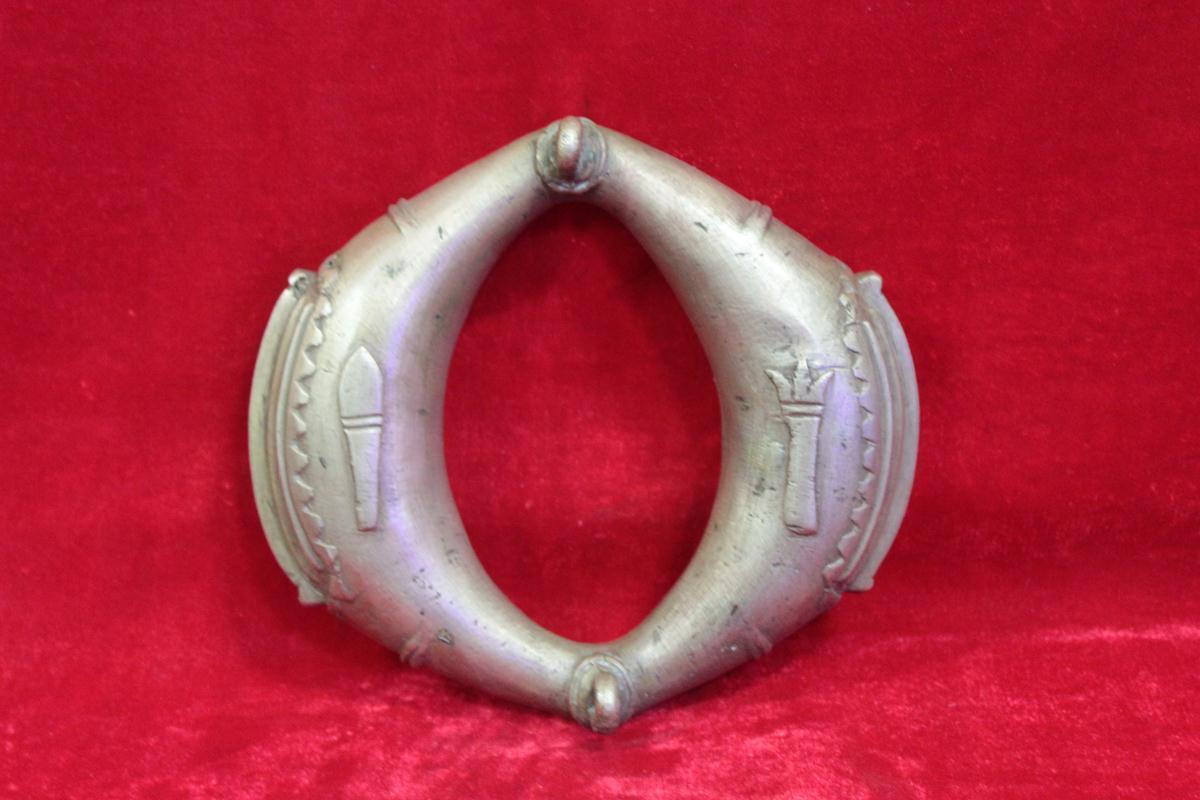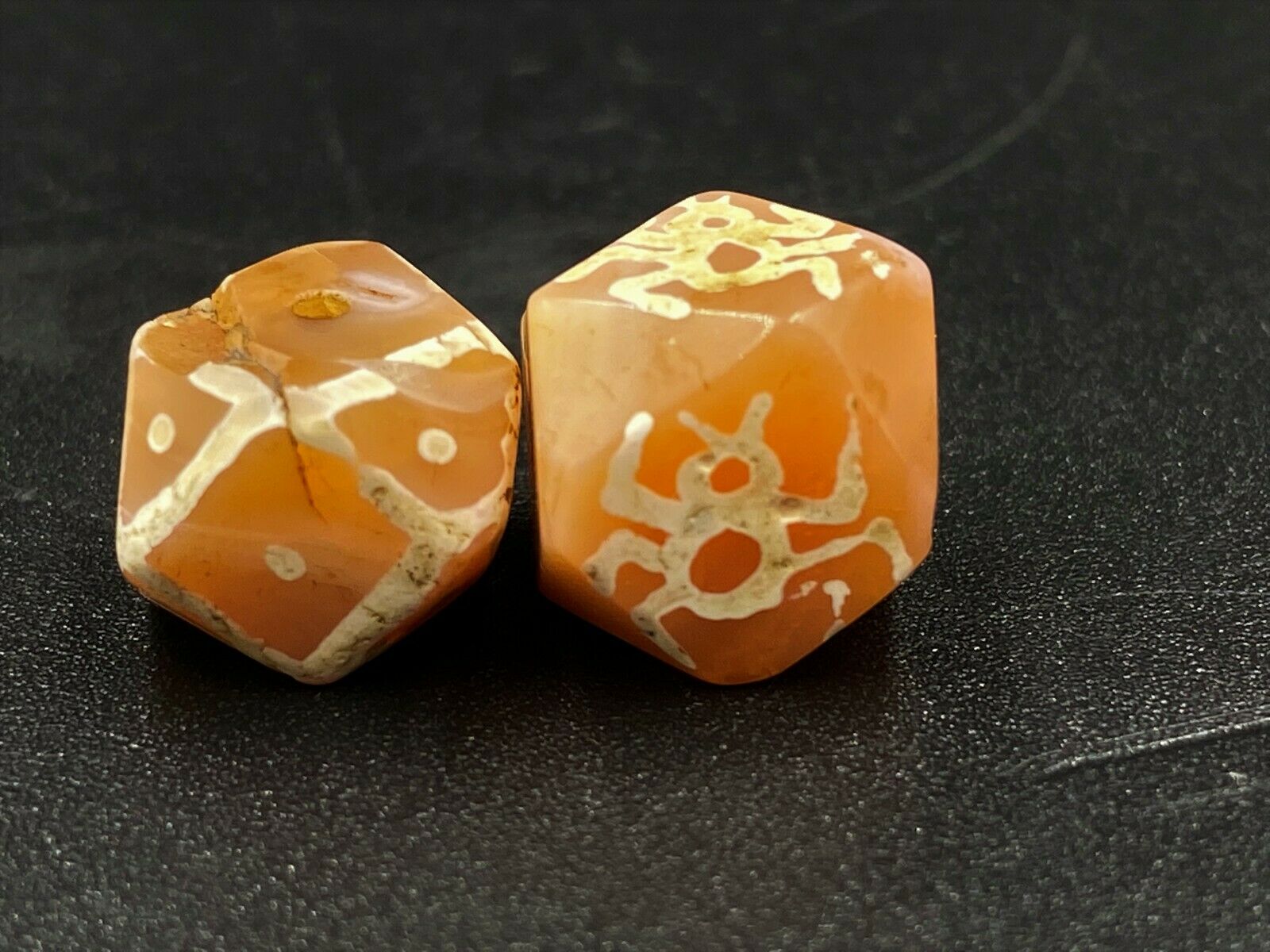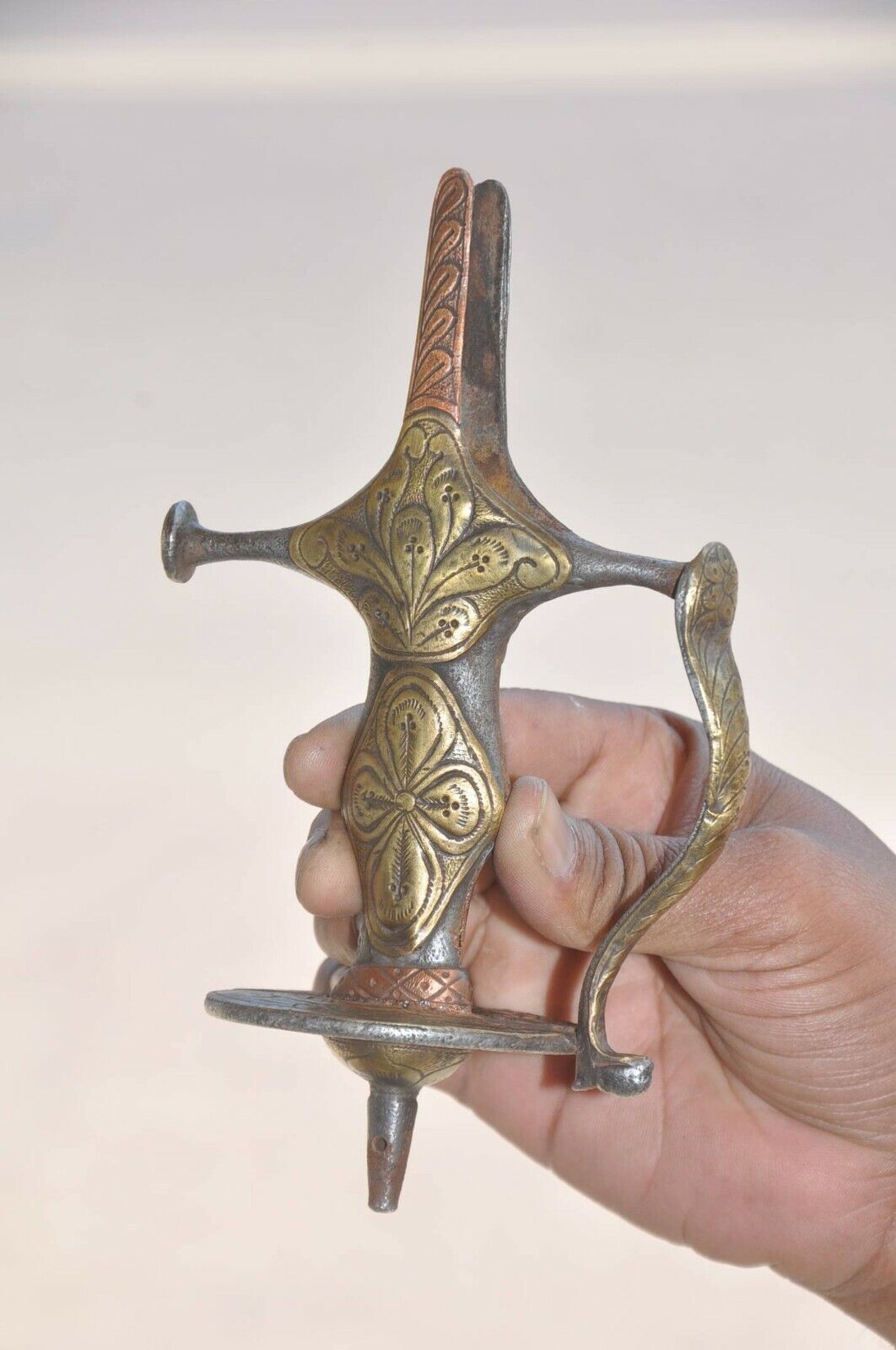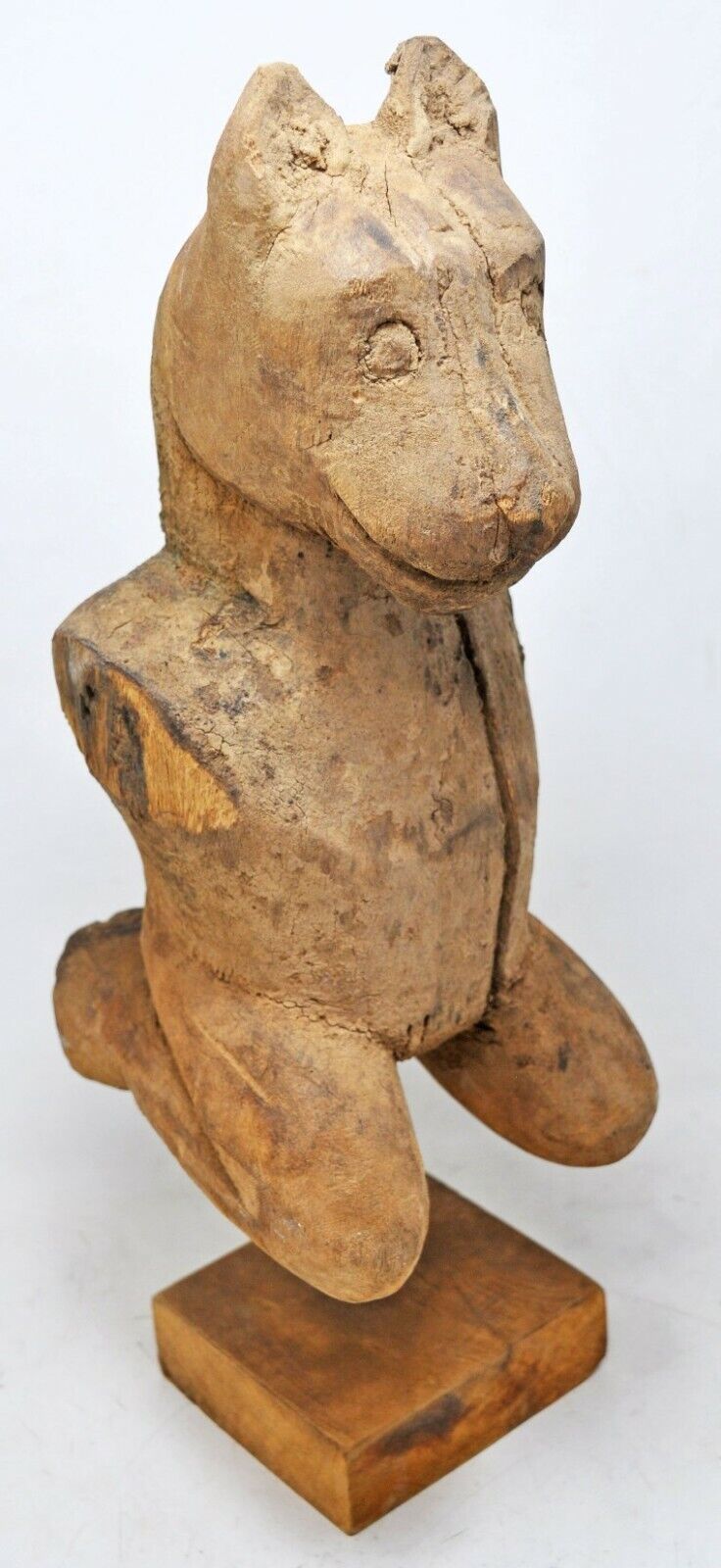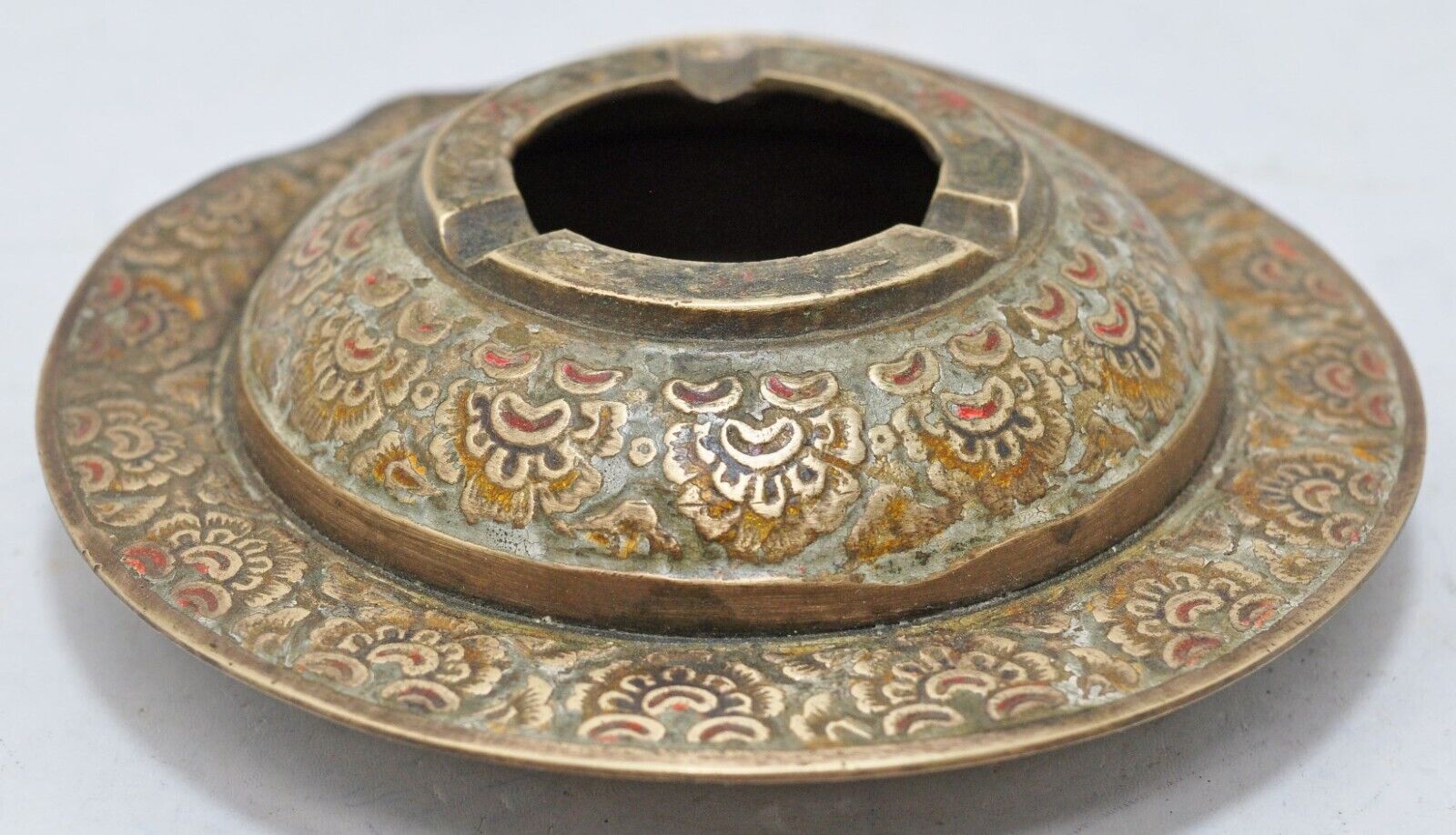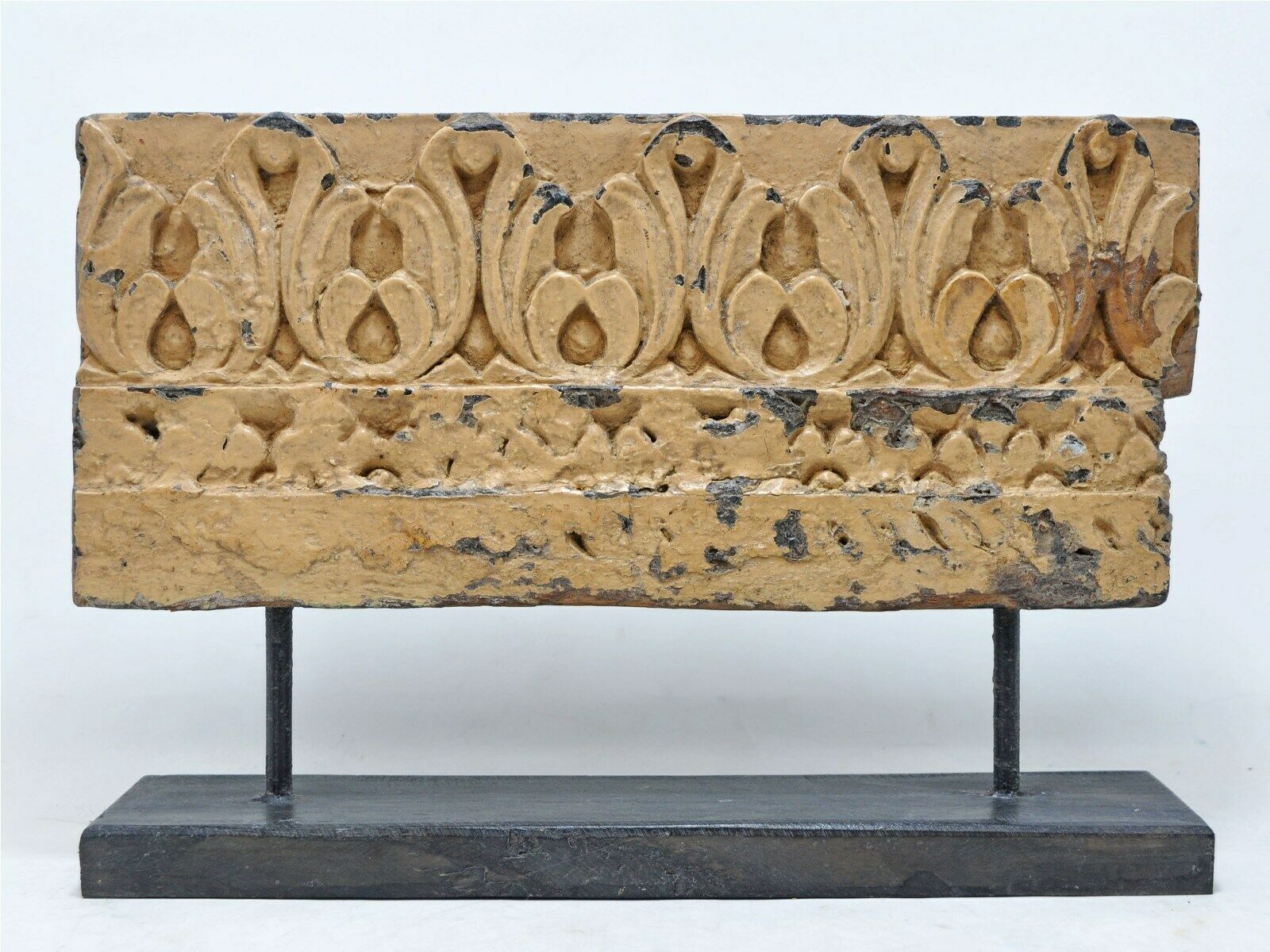-40%
Antique 18th C Lakshmi Bronze Statue Lovely Rare Tribal Casting Fine Patina VG
$ 86.06
- Description
- Size Guide
Description
Antique 18th Century Small Lakshmi Bronze Statue Lovely Rare Tribal Casting with a Fine PatinaShipped with USPS Priority Mail or USPS First Class
This is a rare and beautiful diminutive tribal murti of Lakshmi. This energetic and sensuous Lakshmi has obviously been a household devotional statue for many years. It has a wonderful hand feel and a rich lustrous umber and gold high lighted patina. A very joyous expression on her visage.
Weight: 257 grams Dimensions: Height 4.25 inches Width 2.0 inches Depth 1.50 inches
PLEASE REFER TO THE EXTENSIVE AND DETAILED PHOTOGRAPHS IN THIS LISTING FOR A COMPLETE AND ACCURATE DESCRIPTION AND Kindly ASK ALL QUESTIONS BEFORE BIDDING.
Lakshmi
, also spelled
Lakṣmī
, also called
Shri
, Hindu goddess of wealth and good fortune. The wife of Vishnu, she is said to have taken different forms in order to be with him in each of his incarnations. Thus, when he was the dwarf Vamana, she appeared from a lotus and was known as
Padma, or Kamala, both of which mean “Lotus”; when he was the ax-wielding Parashurama, the destroyer of the warrior class, she was his wife
Dharani; when he was King Rama, she was his queen Sita. In the most widely received account of Lakshmi’s birth, she rose from the churning of the ocean of milk (an important event in Hinduism), seated on a lotus and holding another blossom in her hand. Controversy arose between the gods and demons over possession of her.Lakshmi is often represented in sculpture seated on a lotus, full-breasted, broad-hipped, beneficently smiling, and sometimes being lustrated by a pair of elephants pouring water over her. Her vehicle is the white owl. She continues to be worshiped by modern Hindus, particularly in the home (every Friday) and on regular festival days throughout the year. She is greatly revered in the Jain faith.
